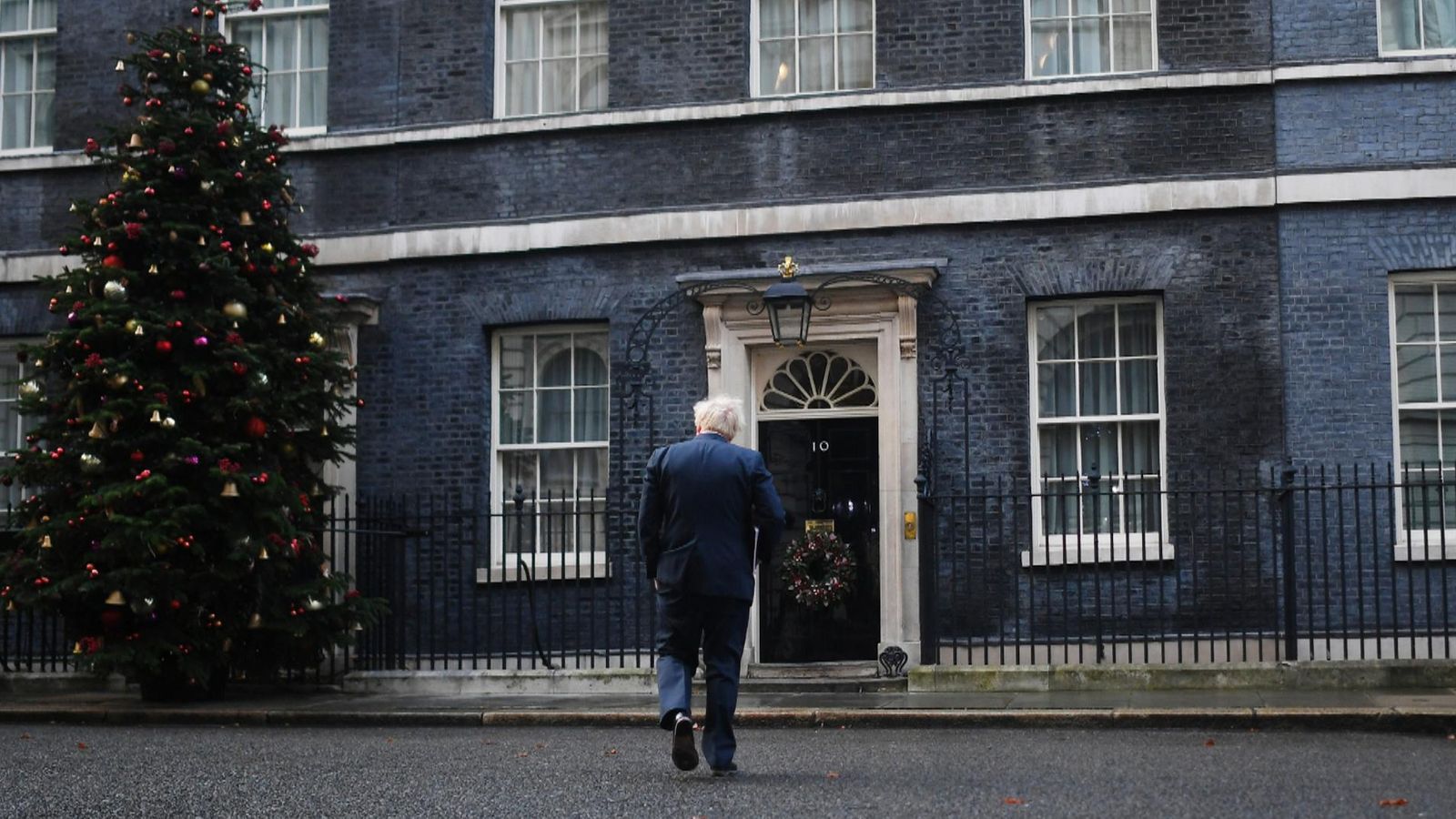Boris Johnson is resisting demands to “cancel Christmas”, claiming it is too late to change plans to allow families to meet up during a five-day relaxation of COVID rules.
He will face MPs in the Commons and later address Tory backbenchers and declare his opposition to dropping plans for three households to meet up from December 23 to 27.
But the prime minister is expected to urge people to self-isolate before joining up with other households and the government is poised to issue tougher guidance for the festive period.
Besides isolating before meeting up, the new guidance is expected to include a plea to stay local where possible and think carefully before meeting elderly and clinically vulnerable people.
Mr Johnson is set to clash at PMQs with the Labour leader Sir Keir Starmer, who has demanded an urgent review of Christmas COVID rules and claims the tier system has failed to control the virus.
But speaking to the 1922 Committee of Conservative MPs later, the PM will attempt to reassure backbenchers who claim a change in the rules at this stage would be met with widespread defiance.
The PM’s “carry on Christmas” message, defying pressure from medics to scrap the five-day relaxation, emerged after the Cabinet Office minister Michael Gove held talks with the leaders of Scotland, Wales and Northern Ireland.
After the talks, a UK government source said: “There are no plans to change the regulations in England. We’re keen to maintain a UK-wide approach and will have further discussions with DAs (devolved administrations) tomorrow morning.”
Later, commenting on England, a government source told The Daily Telegraph: “We’ve set out the rules. People know what they are. It would be wrong to change them this close to Christmas when they have made plans.”
But the source added: “However, the prime minister will want to be clear that minimising the risk to themselves and their loved ones is something they should consider.”
In his talks, Mr Gove found little appetite for changing the Christmas plans. Welsh First Minister Mark Drakeford described the four nations approach as a “hard-won agreement” and said he would “not lightly put it aside”.
A Scottish government spokeswoman said: “The four nations call was a good opportunity to review the position on Christmas and discuss whether the messaging or guidance requires to be reinforced.”
But earlier, First Minister Nicola Sturgeon told the Scottish Parliament: “I do think there is a case for us looking at whether we tighten the flexibilities that were given any further, both in terms of duration and numbers of people meeting.
“And I will consider the views of the other nations – if we can come to a four nations agreement, I think that would be preferable.
“If that is not possible, then of course we will consider within the Scottish government what we think is appropriate.”
A snap GB-wide YouGov poll suggested 57% of respondents believed the relaxation of COVID rules over Christmas should be dropped and only 31% said the easing of rules over the festive period should go ahead.
As well as reviewing the Christmas rules, the government is also reviewing the three-tier system in England, with some areas outside London, which is now in Tier 3, possibly moving from Tier 3 into Tier 2.
In the Commons on Monday, the Health Secretary Matt Hancock gave a strong hint to the former Labour Cabinet minister Hilary Benn that Leeds could be about to move from Tier 3 to Tier 2.
Mr Benn said since the recent national lockdown began the infection rate in Leeds had fallen from over 400 cases per 100,000 to less than 140 and the number of COVID patients in hospital has declined by 45% in the past month.
Mr Hancock replied: “You have made a typically wise intervention ahead of the decision making on Wednesday as to the wider tiering decisions for the rest of the country.”
Later, at a Downing Street news conference, Mr Hancock hinted that Manchester, Newcastle, the Tees Valley, Bristol and Nottingham may also have some hope of following Liverpool out of Tier 3 into Tier 2 in the review.
He said all had shown the same pattern of strong local resolve to cut infections, as the Liverpool city region had when it secured its move to the lower tier. “We can do this, but we need to do it together,” Mr Hancock said.
